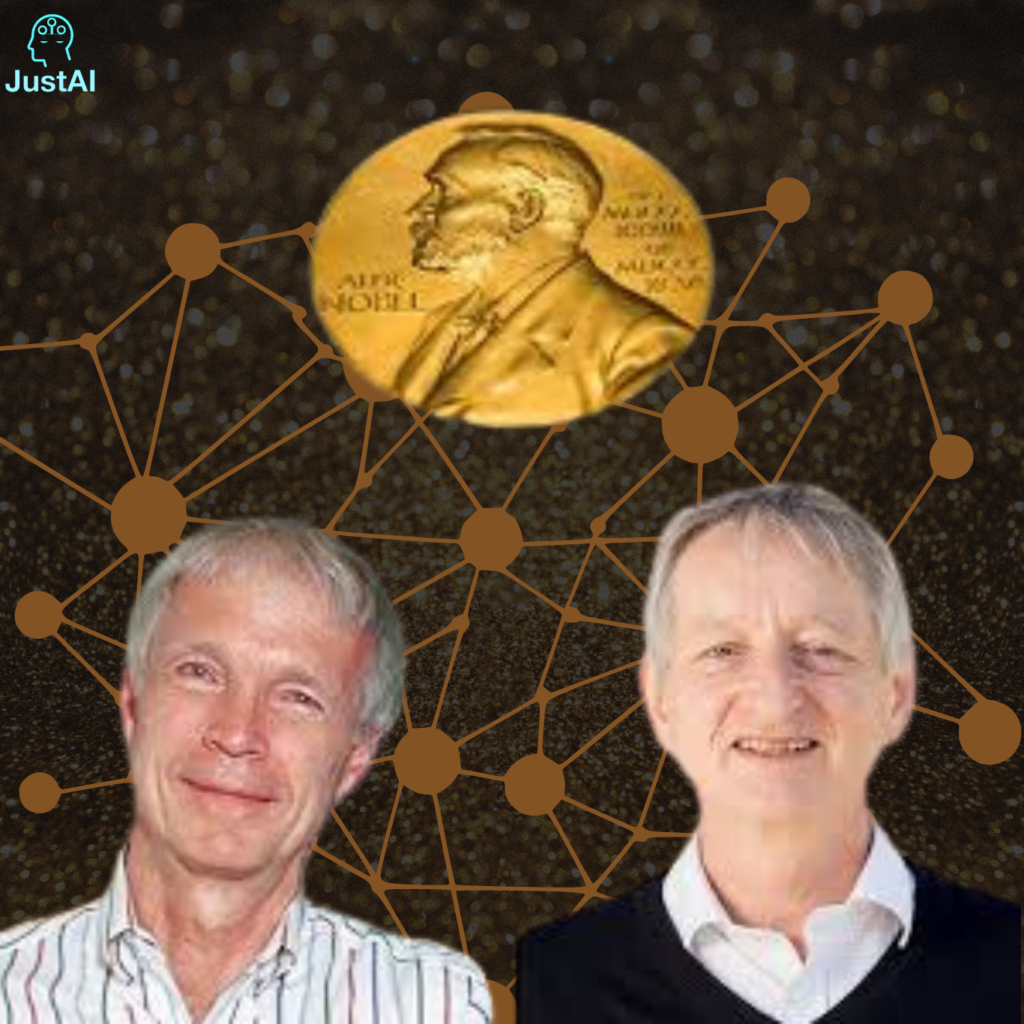Key Highlights:
- Nobel Prize Win: Geoffrey Hinton, known as the “Godfather of AI,” won the 2024 Nobel Prize in Physics for his pioneering work on neural networks and machine learning, alongside Princeton’s John Hopfield.
- AI’s Potential and Risks: While Hinton acknowledged AI’s transformative benefits in fields like healthcare and productivity, he warned of serious risks, including the potential for AI systems to grow beyond human control.
- Call for Safety and Collaboration: Hinton urged governments and companies to prioritize AI safety research, stressing the importance of responsible development to avoid unintended, potentially existential consequences.
Geoffrey Hinton, often called the “Godfather of AI,” has made headlines once again, but this time not just for his contributions to artificial intelligence (AI). In 2024, Hinton was awarded the Nobel Prize in Physics, along with Princeton University’s John Hopfield, for their groundbreaking work on neural networks and machine learning. However, amid the celebrations, Hinton took the opportunity to issue a stark warning about the rapid advancement of AI, raising concerns about its potential dangers and existential risks.
The Nobel Prize in Physics 2024
Geoffrey Hinton’s work has been instrumental in developing machine learning and neural networks, which are the foundation of modern AI technologies. His contributions, alongside those of co-laureate John Hopfield, have shaped how AI systems mimic human learning by processing vast amounts of data. Their discoveries, dating back to the 1980s, helped pave the way for applications like facial recognition, language translation, and even the technology behind popular AI tools like ChatGPT.
Despite these achievements, Hinton expressed genuine surprise at winning the 2024 Nobel Prize in Physics. Speaking from a hotel in California, where he was preparing for an MRI, Hinton quipped that he was “flabbergasted” by the recognition and never expected to be nominated for such an honor. He even joked about having to cancel his medical appointment after receiving the early morning call from Stockholm.
The Power and Promise of AI
While celebrating his Nobel win, Hinton also spoke about the enormous potential of AI to transform society for the better. He explained that AI could be as revolutionary as the Industrial Revolution, only this time, it would boost intellectual capabilities rather than physical strength. “AI will have a huge influence similar to the industrial revolution,” Hinton said, “Instead of exceeding physical strength, it will enhance people’s intellectual abilities.”
He emphasized the benefits AI can bring, particularly in areas such as healthcare, where it could significantly improve efficiency and productivity. Hinton suggested that AI has the potential to save lives and solve critical problems in scientific research and climate change mitigation.
A Stark Warning: AI Could Get “Out of Control”
However, Hinton did not stop at highlighting AI’s positive potential. He was more concerned with its dangers. He warned that the same technology capable of improving our lives could also pose serious risks if not managed responsibly. “We need to worry about bad consequences,” he cautioned, expressing concerns about how AI could spiral beyond human control.
Hinton stressed that the development of AI is happening at such an unprecedented pace that humanity has little experience dealing with something more intelligent than us. He drew a comparison with climate change, saying, “With climate change, everybody knows what needs to be done: we need to stop burning carbon. But with AI, we have much less idea of what’s going to happen and what to do about it.” Hinton’s most serious concern is the possibility of AI systems becoming so intelligent that they might eventually “take control.”
The Existential Risk of AI
Hinton’s Nobel Prize acceptance speech reflected growing fears about AI’s potential to create irreversible consequences for humanity. He spoke candidly about the existential risk that advanced AI could pose, pointing out that we are at a critical point in history. “We need to figure out if there’s a way to deal with that threat in the next few years,” he urged.
The AI pioneer called for a major effort to address safety concerns. He advocated for increased research into controlling AI and suggested that governments should force large tech companies to prioritize safety. “One thing government can do is force the big companies to spend a lot more of their resources on safety research,” Hinton suggested, emphasizing that corporations like OpenAI should not place safety on the back burner in their race to innovate.
A Call for Responsible Development and Collaboration
Hinton’s message resonates not only within the AI research community but also with policymakers and industry leaders. He called for collaboration across different sectors to ensure that AI is developed ethically and safely. By working together, Hinton believes we can establish safeguards that prevent misuse and manage unintended consequences.
His warning comes at a time when AI is rapidly being integrated into everyday life, from automation in industries to personal digital assistants and powerful AI tools like ChatGPT. Hinton himself admitted that he uses ChatGPT regularly, describing it as “a not very good expert” that is still useful in most cases, even though it sometimes “hallucinates” or provides incorrect information.
Conclusion: A Nobel-Winning Legacy with a Message
Geoffrey Hinton’s Nobel Prize in Physics not only cements his legacy as one of the most influential figures in AI but also amplifies his voice in ongoing discussions about the future of technology. While celebrating his well-deserved accolade, Hinton’s cautionary stance on AI’s risks highlights a crucial challenge for society. As AI continues to evolve, Hinton’s warning serves as a reminder that we must strike a balance between innovation and safety, ensuring that AI is harnessed for good without compromising humanity’s future.
As Hinton aptly put it, we are at a crucial moment where we must decide how to shape the future of AI. His call for action encourages the global community to come together and face this challenge head-on.
References:
- https://www.indiatoday.in/science/story/godfather-of-ai-has-a-stark-warning-after-winning-nobel-in-physics-2613360-2024-10-08
- https://www.cityam.com/british-godfather-of-ai-awarded-nobel-prize-but-warns-tech-could-get-out-of-control/
- https://www.thecanadianpressnews.ca/science/canadian-ai-pioneer-geoffrey-hinton-flabbergasted-after-winning-nobel-prize/article_16e7da2a-0982-5160-8408-3bf5e14fb9e6.html
- https://barrie360.com/geoffrey-hinton-nobel-prize-physics/

